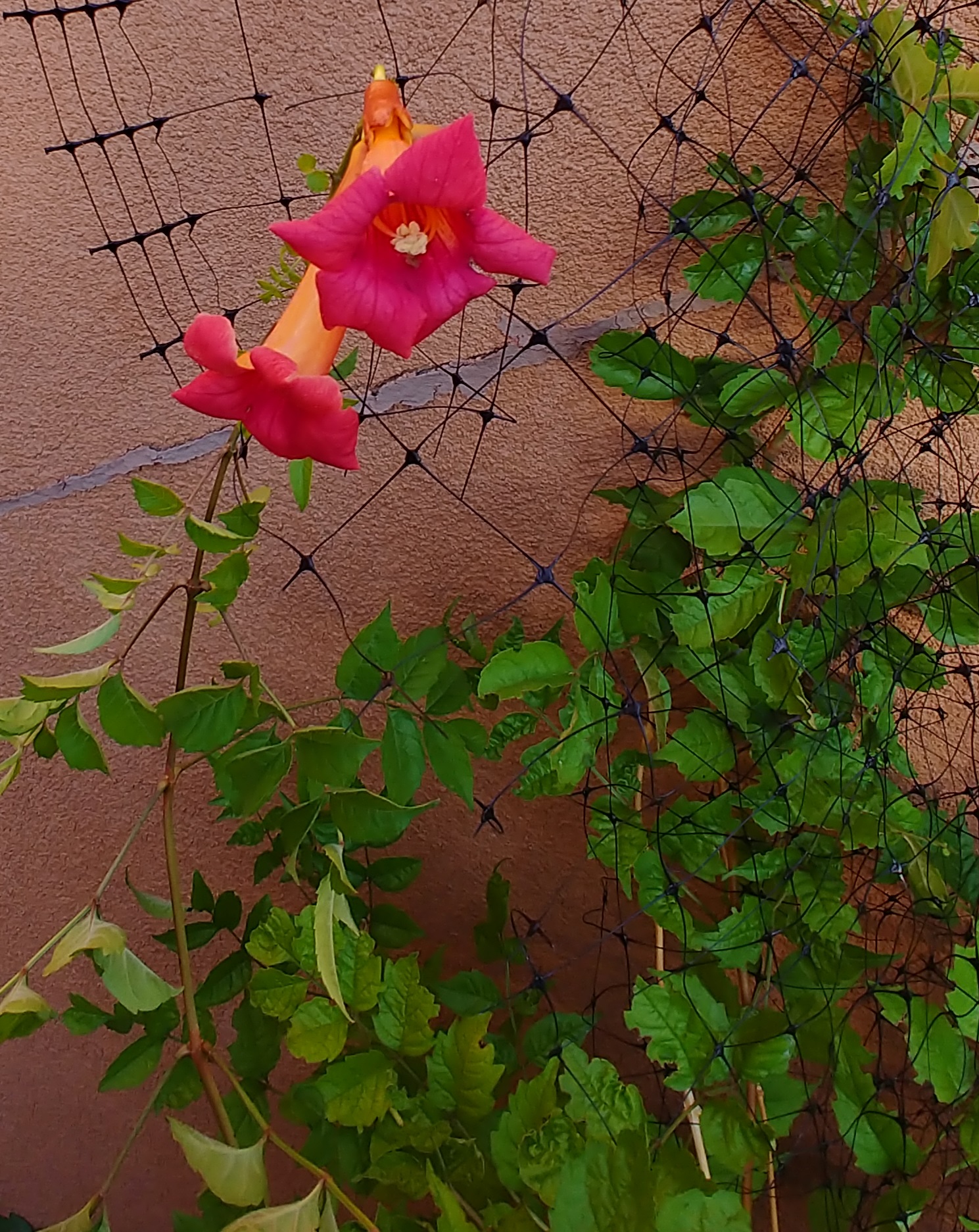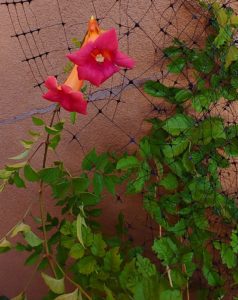Why I’m participating in VOW for Girls to stop child marriage, thoughts on donating (& why you don’t have to), joy, best ways to build and refine craft, why I don’t journal, and how I’m a Swiftie forever.

RITA ® Award-Winning Author of Fantasy Romance

Why I’m participating in VOW for Girls to stop child marriage, thoughts on donating (& why you don’t have to), joy, best ways to build and refine craft, why I don’t journal, and how I’m a Swiftie forever.

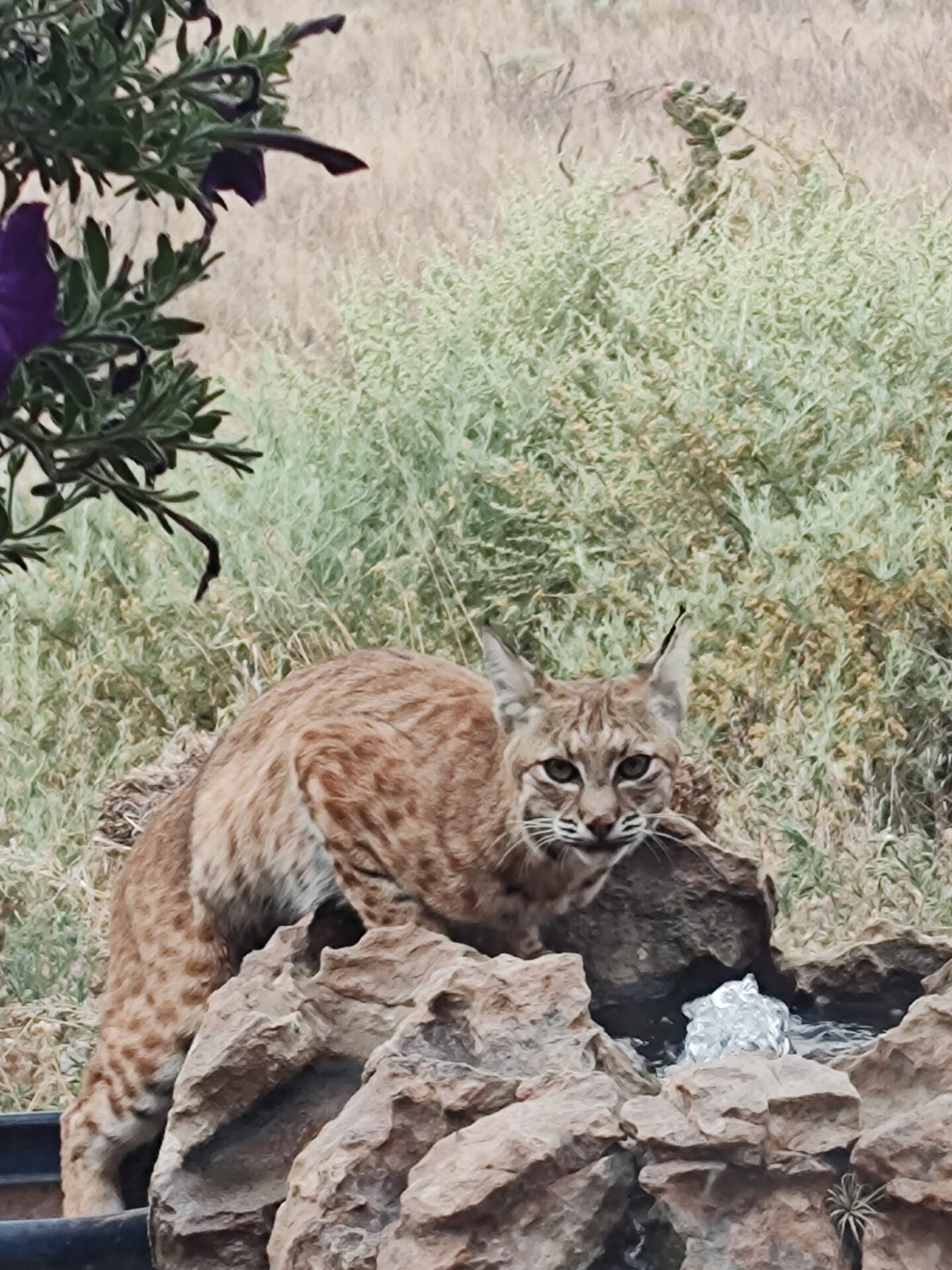

This week at the SFF Seven, we’re asking: “Do you read in the genre you write?”
What’s funny is that my answer is absolutely yes – but that I didn’t always write in the genre I read. Does that make sense?
I have always read Fantasy and Science Fiction, since I was a little kid, and I’ve been reading Romance since I was old enough to walk to the used bookstore to buy my own books, as my mom wouldn’t let me read “that trash.” (Because she thought Romance was low-brow and anti-feminist, not because of the sex.) But when I started out as a writer, I wrote Creative Nonfiction.
Some of this was timing and coincidence. When I decided I wanted to be a writer instead of a scientist, one of the first classes I took was “Essays on Self and Place,” from a visiting writer at the university. I fell easily into writing essays and had success with them. My first book was an essay collection. And, sure, I read some essays. I read a lot of essay collections and memoir. But I was always reading them as research and reciprocity.
All that time, what I read for pure enjoyment? Anything with a paranormal/SFF element and plenty of Romance.
It was only after my first book came out that a friend – a bookseller who knew my tastes and sold me hardcover releases of JD Robb, Laurell K. Hamilton, Stephenie Meyer, and Jaqueline Carey – asked me why I wasn’t writing in the genres I so clearly loved to read.
Funny that. It simply hadn’t occurred to me. But then I started to, I wrote this Fantasy Romance* (not a genre then, but what did I know??) that was SO MUCH FREAKING FUN TO WRITE. I couldn’t believe how much more fun I had writing my crazy tale about a scientist who falls into Faerie, becomes a sorceress, and ends up in a bargain with a fae lord to bear his child. I even got a really nice rejection on the book from Stephenie Meyer’s agent! (Though it took a long time for me to sell it, which is another tale.)
The rest is history. ~ Waves at catalogue of Epic Fantasy Romances ~ I haven’t looked back. Writing what I love to read has absolutely been a great decision.
*The book that became ROGUE’S PAWN
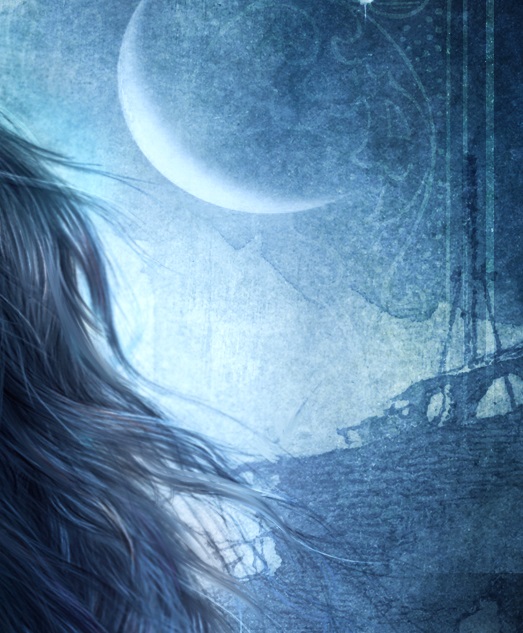
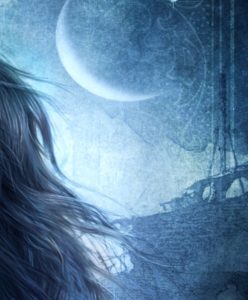
Here’s a little tease of the cover of ROGUE FAMILIAR, book 2 in Renegades of Magic, releasing at the end of February. Cover reveal coming soon!
This week at the SFF Seven we’re talking about the Mentality of Negative Reviews. Specifically, the person who posed the question asked: do you recognize your fight-or-flight response to negative reviews and do anything to stop it?
I’m including the full text of the question because I’m disagreeing with the initial premise. I don’t think I have a stress response to negative reviews. It could be that I’ve been writing long enough (nearly thirty years *gasp*) that I’ve become more or less inured to negative reviews. I remember a review of my first book, the essay collection WYOMING TRUCKS, TRUE LOVE, AND THE WEATHER CHANNEL, that was mostly glowing – but also said I used adverbs too much. It came from a professional reviewer at a venue I can’t recall, and that was long before I realized that many reviewers are aspiring writers who cling to the “rules” of writing with the tenacity of an apprentice seeking the magic formula to catapult them to true wizard status. Mostly I was surprised that, if my professional, experienced editor at a university press hadn’t minded my adverbs, then why did a reviewer? I understand now. I also know more about the weird anti-adverb stance some writers absorb.
Mostly. <- See what I did there? Humor is key.
Anyway. Experiencing a flight-or-fight response to a review means that you feel attacked. I suppose some reviewers intend it that way. They like to speculate about the author’s emotional life, intentions, or deadline pressure. Authors are occasionally accused of manipulating readers to extract profit. Sometimes our moral integrity is questioned. But that’s all par for the course on social media. I think what’s most important for writers to do is separate themselves from their work. YOU didn’t receive a negative review; the book did. Even if the reviewer specifically attacks the author, they’re still not actually reviewing you as a human being, because they don’t actually know you. The author is a construct in their mind that has very little to do with reality.
Keeping your poise, a sense of yourself as a person separate from the work, and keeping a sense of humor about it all is what gets you through. After all, a review isn’t a tiger. No one’s going to die over a review. It’s fangless, toothless, and ultimately dust in the wind.
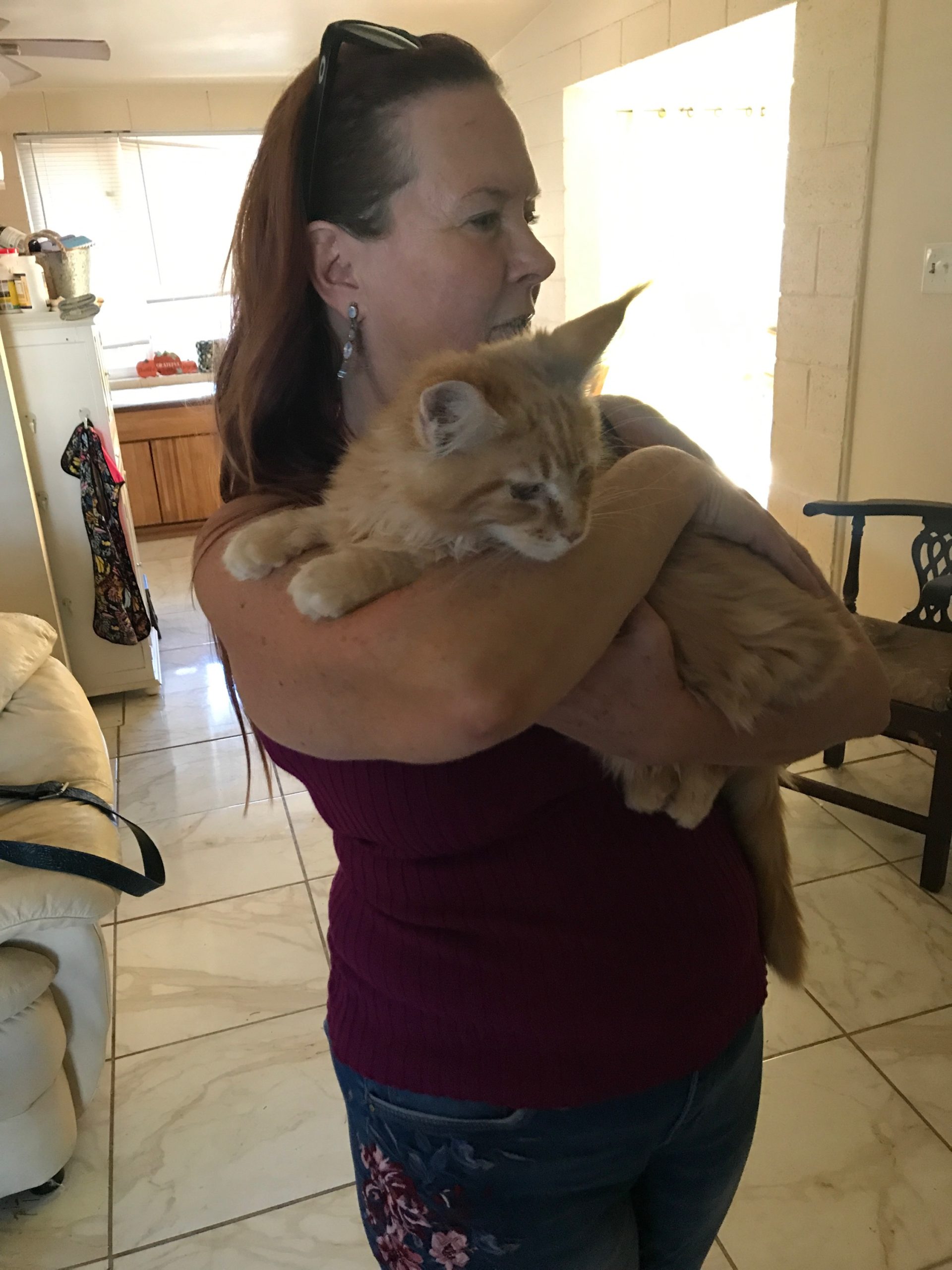
Reflections on re-reading my first book – WYOMING TRUCKS, TRUE LOVE, AND THE WEATHER CHANNEL – including thoughts on Taoism, the passage of time, and the ways in which who we are changes and doesn’t.
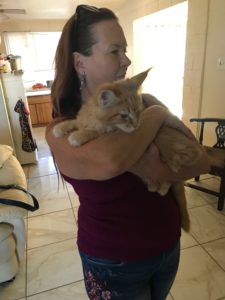
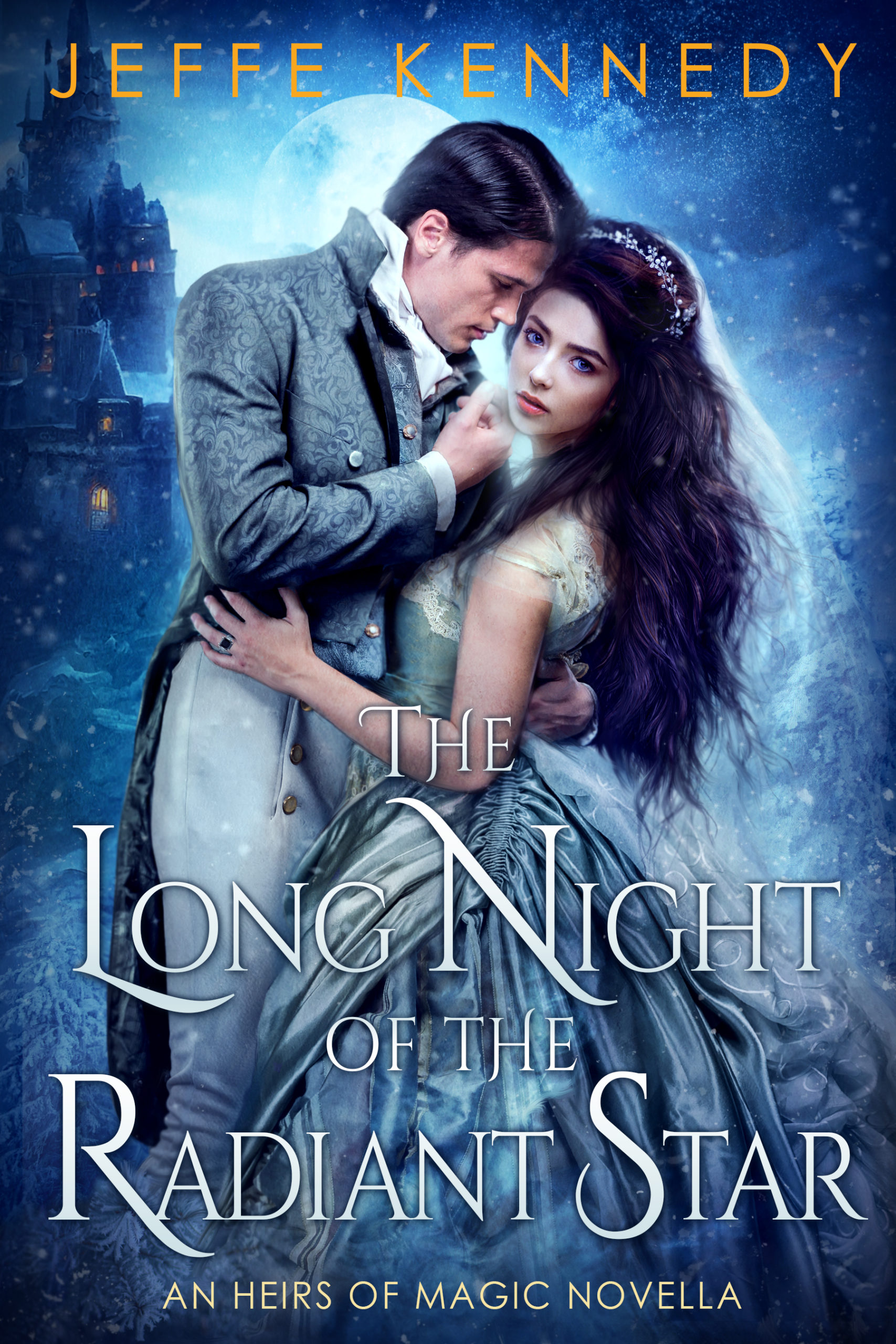
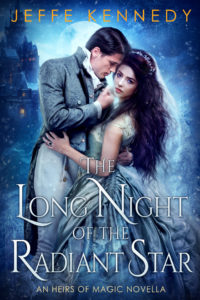
Coming Soon! THE LONG NIGHT OF THE RADIANT STAR.
This is a novella in the Heirs of Magic series and occurs after THE STORM PRINCESS AND THE RAVEN KING. It’s Jak and Stella’s wedding on the longest night, the Feast of Moranu. I think I’ll release it on Monday, November 21, 2022. No preorder this time. I’ll post when it goes live!!
***
At long last, Jakral Konyngrr—lowly sailor, gambler, and sometime rogue—has won the heart and hand of Princess Stella of Avonlidgh. Never mind that Stella’s mother is determined to make their wedding the event of the century, he’s happy to endure any trial to marry the love of his life and his guiding star. Very soon they can sail away together into the rest of their lives. Unfortunately the wedding becomes delayed for several months, until midwinter.
Stella—sorceress, empath, and bearer of the mark of the Tala—has been through great trials. But nothing has tested her as sorely as her passionate and flamboyant mother planning their wedding. Even Jak’s steady love and companionship isn’t enough as Stella finds herself crumbling under the pressure of being snowbound in a castle with the press of so many minds and emotions. When she lashes out, she hits the worst possible target, jeopardizing her chances for happiness.
With several kingdoms and a former enemy empire bearing down on them, Jak and Stella’s wedding on the longest night of year might not happen at all… Unless they can create their own happy ever after.
***
This week at the SFF Seven, we’re talking about Telling vs. Showing, particularly we’re examining when some narrative exposition is needed.
It’s an interesting question, and one very much focused on genre fiction. Many of you know I began my writing career in creative nonfiction. For many years I wrote and sold essays. My first book was an essay collection. At no point in that time – in classes, in critique groups, in discussions with editors – did anyone bring up Telling vs. Showing. It was only after I began writing fantasy romance (etc.) that the concept was introduced to me. I had to learn not to use the narrative exposition that had worked so well for my creative nonfiction voice, but to “show” instead.
Why is this a thing?
The oft-cited example is attributed to Anton Chekhov: “Don’t tell me the moon is shining; show me the glint of light on broken glass.” It turns out this exact quote is probably apocryphal. A passage from the article I linked to says:
In May, 1886, Chekhov wrote to his brother Alexander, who had literary ambitions: “In descriptions of Nature one must seize on small details, grouping them so that when the reader closes his eyes he gets a picture. For instance, you’ll have a moonlit night if you write that on the mill dam a piece of glass from a broken bottle glittered like a bright little star, and that the black shadow of a dog or a wolf rolled past like a ball.”
It’s salient to note that he’s talking about description here. When my genre-fiction editors and critique partners introduced the concept to me, they framed it as a way to deepen the point of view (POV). In genre fiction, in particular, readers love to be immersed in the characters and world, thus the incentive to deepen POV.
I worked diligently to learn to show, not tell.
Fast-forward to my current agent, the insightful and incisive Sarah Younger at Nancy Yost Literary Agency. One day, after reading one of my manuscripts we planned to take on submission to traditional publishing, she said, “Jeffe, I know you work really hard to show, not tell, but sometimes we just need a line or two telling us what the heck is going on.”
And she was right. I was so busy describing the glint of light on broken glass that I was failing to explain that this world had three moons.
In the end, as with all things, it comes down to balance. We need both in order to tell effective stories: immersive description and deep POV, along with some clear narrative exposition to ground the reader in the world.
I’m getting better at it!
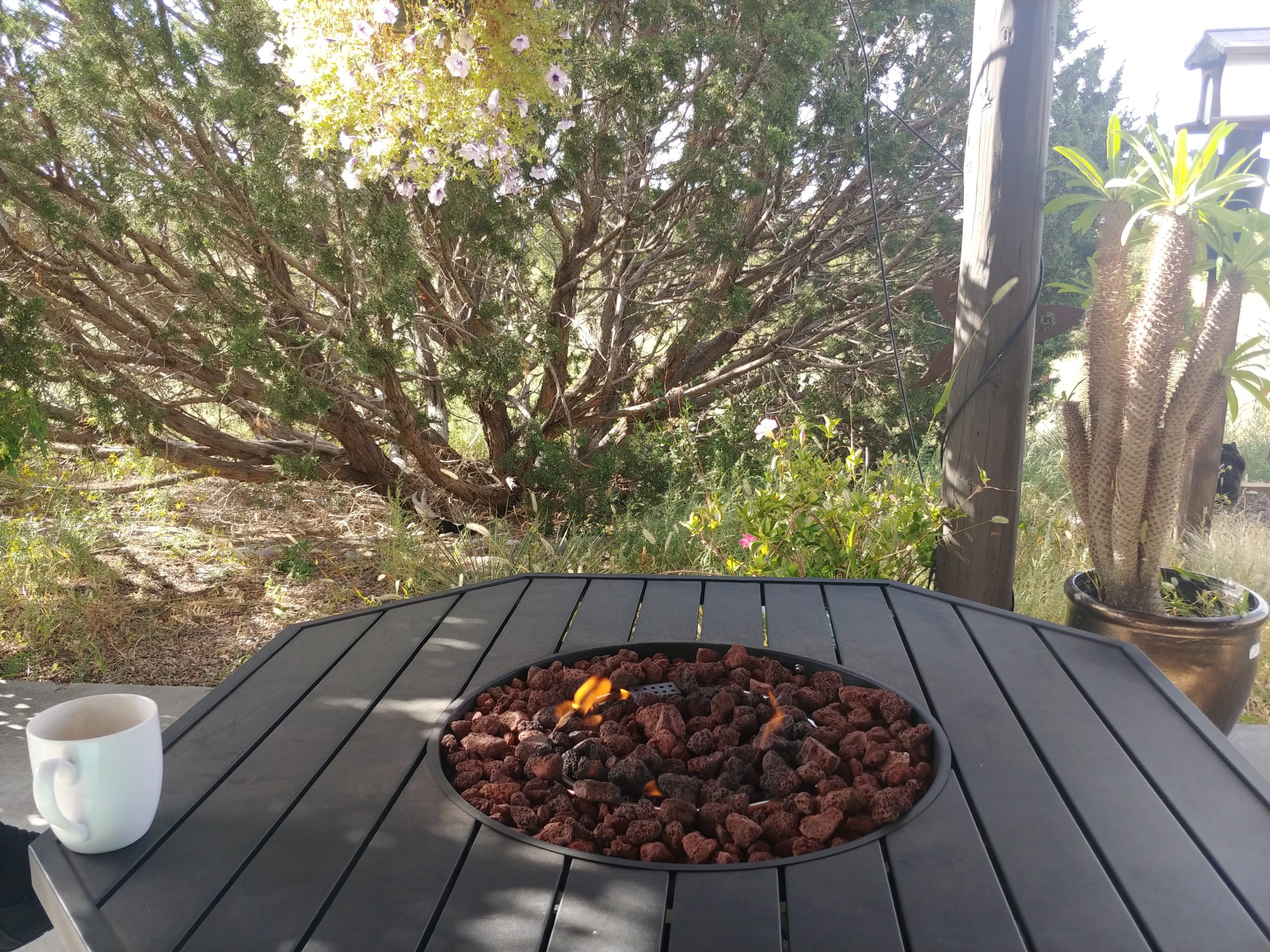
I go long today talking mostly to the authors out there about buying ads, marketing, and promo – and why putting time, money and attention into writing instead will not only make you happier but more successful in the long run.

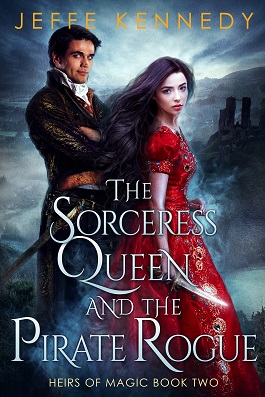
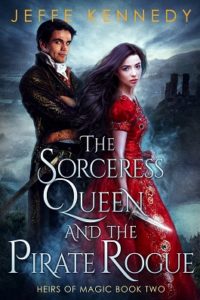
THE SORCERESS QUEEN AND THE PIRATE ROGUE comes out April 19! This is Book Two in Heirs of Magic, and you can preorder a copy at the links below or via my website. 🙂
This week at the SFF Seven, we’re examining the differences between writing a short story, novella, novel, series. We’re asking each other: Do you prepare for length beforehand or edit down (or add new stuff) afterward?
So, I have Strong Opinions about this. Something that may come as a surprise to exactly none of you. Come on over for more!




